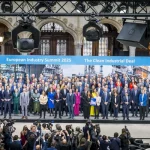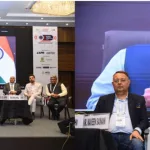 One of the most widespread, if not hot, subjects of discussion in the apparel and clothing world (or the fashion world) is “sustainability.” Suddenly, there is a flood of organisations – mostly registered as Not-For-Profit – claiming to be working for the future of the humanity and so on. Some of the organisations claim to be working to improve the conditions for those who make the clothes we wear calling it “sustainable fashion and ethical fashion.”
One of the most widespread, if not hot, subjects of discussion in the apparel and clothing world (or the fashion world) is “sustainability.” Suddenly, there is a flood of organisations – mostly registered as Not-For-Profit – claiming to be working for the future of the humanity and so on. Some of the organisations claim to be working to improve the conditions for those who make the clothes we wear calling it “sustainable fashion and ethical fashion.”
Let’s first see in how many ways the term ‘sustainability’ is appearing in the Wikipedia, one of the most referred knowledge banks. The name sustainability is derived from the Latin sustinere (tenere, to hold; sub, under). Sustain can mean “maintain,” “support,” “uphold,” or “endure”.
In 1992, about 1,700 of the world’s leading scientists including most of the Nobel Prize laureates in the sciences signed a letter with a clear message “Human beings and the natural world are on a collision course.” It warns that if humanity wants to prevent the damage, some steps need to be taken: better use of resources, abandon of fossil fuels, stabilization of human population, elimination of poverty and more. The scientists called to reduce the use of fossil fuels, meat, and other resources and to stabilize the population.
In 2017, a second warning – signed by 15,364 scientists from 184 countries – to humanity was issued. They again repeated their abovementioned call.
In November 2019, more than 11,000 scientists from 153 countries declared “climate emergency” and called to stop overconsumption, move away from fossil fuels, eat less meat, stabilize the population, and more.
In May 2013, Copenhagen Business School (CBS), in collaboration with GfK (Growth from Knowledge), conducted a global expert study on sustainable fashion. One of the participants commented: “After seeing so many NGOs pop up trying to get their piece of the pie and help fashion companies to become more sustainable, I was happy to see an initiative coming from the industry itself. The Sustainable Apparel Coalition builds on work done by individual companies. I expect real transformation to happen with these world’s leading brands and retailers at the forefront.”
If we assume that these global brands and retailers are in a better position to ensure sustainability – in whatever way it is defined today – then, I am afraid – we are going to get a big shock of our lifetime in coming future. The issues involved are so serious – like environment, labour wages and welfare, trade, commerce and foreign policies, etc. – that they cannot be handled alone by any NGO, brand, retailer without the governmental intervention, initiatives and support.
A closer look at the work/culture of most of these stakeholders will reveal a lot about their hidden agenda. They are working like any branch of the United Nations/World Bank/WTO or any other global organisations. Their reports are grand looking, their field studies are similar and expensive. Their intention to advertise the work/survey reports rather than focus on the real issues is quite revealing. Sustainability has become a joke (clothing resale, rental, exchange etc). Sustainability is being promoted as a fashion to increase sales and profits. The expenses incurred in sustainability related work are now part of advertising and sales promotion budget ultimately to be borne by the generous customers who think their buying such products will improve the quality of life of poor workers in Bangladesh!
G.D. JASUJA
Managing Editor





